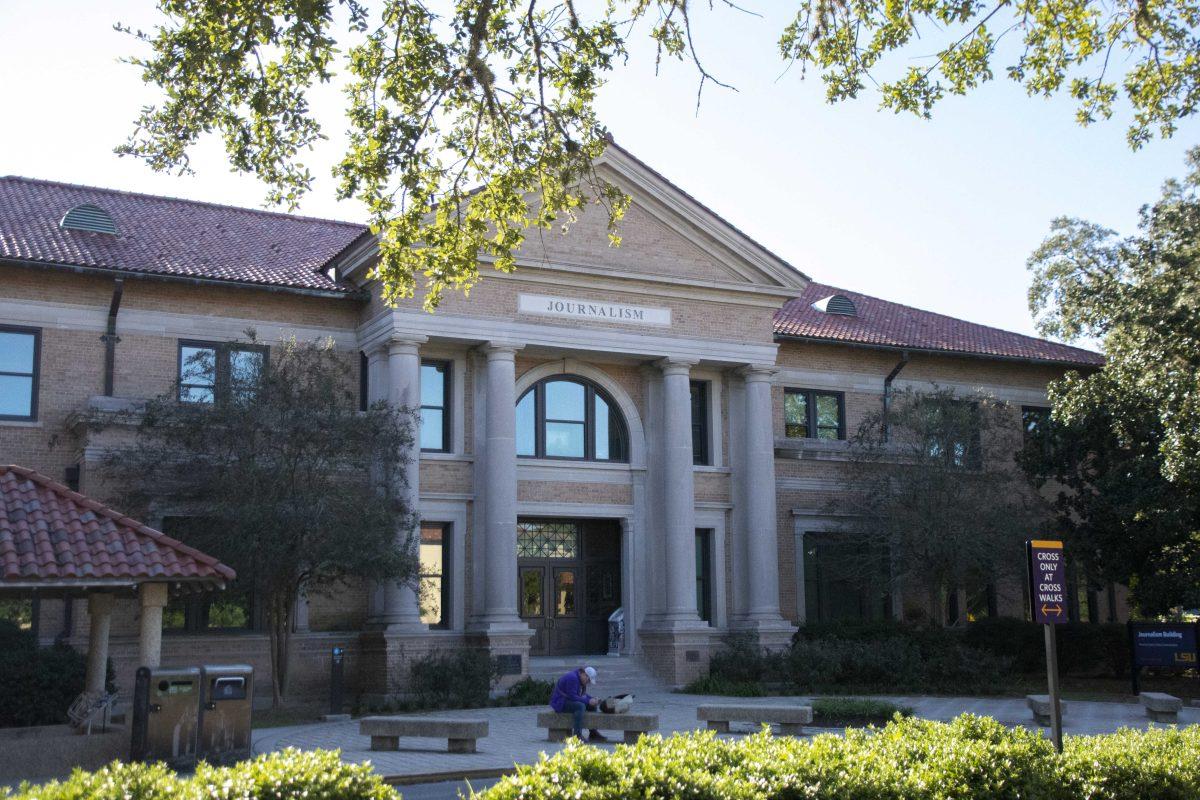There’s a long-running phenomenon that sweeps every University graduating class. Senioritis — the increasing difficulty to focus on one’s academics in light of impending graduation — affects most seniors, but students respond differently to the condition. The effort to stay committed to schoolwork can be grueling for students who already have jobs lined up after graduation. Lauren Ellermann, mass communication senior, said she’ll be working as an investigative assistant with an agency under the Department of Homeland Security in May.Ellermann said she has been working for the department since her junior year but will work full-time after graduation.”Life is hectic as a senior,” she said. “There are definitely nights when I just want to go home, drink a beer and not do anything, but I resist the temptation.” Ellermann said it’s been harder to focus on school since she got the job.”I’ve definitely been slacking a little bit because I see the graduation line, and I know I just need the minimum grade to graduate and that I have a job,” she said. “It takes some of the pressure off, but I still want to make good grades.” Matthew Mick, finance senior, said his initial plan was to attend law school, but he changed his mind after receiving a job offer from Texas Memory Systems. “As soon as I knew I had somewhere I could go after graduation, it was a big weight off my shoulders,” he said. “Especially now that I have a job, it’s harder to focus, and it’s easier to cram and worry about things later.”WHY SENIORITIS SETS INSenioritis is a natural occurrence that typically sets in during the fall semester of a student’s senior year, said James Honeycutt, communication studies professor.”Seniors get lethargic,” Honeycutt said. “They’ve been in school for four years and are making a life change, whether it’s going on to graduate school or getting a job. This is a way of acting out against the uncertainty of their life change.”Phillip Sheridan, general studies senior, said his senioritis started after getting accepted into the Atlantic Acting School in New York.”You get to this point when you realize none of this will mean anything in four months,” Sheridan said. Honeycutt said senioritis can affect any senior, regardless of GPA.”It’s related to a large change in lifestyle and the stress that comes with that,” he said. “It doesn’t necessarily reflect their GPA.”Seniors had an average GPA of 3.015 for fall 2009, which was higher than any other classification, according to the Office of Budget and Planning’s records.Stacia Haynie, vice provost of Academic Affairs, said weaker students tend to drop out before they reach their fourth year of college, and students that make it to senior year have acclimated to college life, resulting in higher GPAs.”Statistically speaking, you’ll have a stronger core of students by senior year,” she said.Though their GPAs may remain intact, seniors can still have trouble focusing and tend to procrastinate, Honeycutt said.MOTIVATIONMany students are able to pull through their senioritis and continue to produce consistent grades, according to Diane Mohler, assistant director of the Center for Academic Success.Krista Allen, history senior, said though it’s a relief to have a job lined up with Teach For America in Georgia, she has always wanted to graduate Magna Cum Laude.”I need four A’s this semester to get it,” Allen said. “No pressure.”Allen isn’t the only self-motivated senior. “I still want to finish strong,” Mick said. “I worked hard over the past four years, and I don’t want to screw around in the last semester.”Stephen Eckholdt, construction management senior, said his senioritis isn’t as severe as it was in high school.”I’m definitely feeling a bit anxious about moving to the next phase of my life,” he said. Mohler said the center is available for students who may need some outside motivation.Mohler said she recommends habits such as planning ahead, not procrastinating on difficult assignments and changing up work strategies to stay focused.Honeycutt said he could offer seniors one piece of advice. “The known cure for senioritis is graduation,” he said.–Contact Sarah Eddington at seddington@lsureveille.com
Senioritis kicks in before graduation, affects those with and without jobs
April 28, 2010

Stephen Eckholdt, construction management senior, Krista Allen, history senior, Lauren Ellerman, mass communication senior, and Matthew Mick, finance senior, have secured jobs for after their graduations in May. Graduating seniors, whether they already have jobs or not, often suffer from Senioritis, an increasing difficulty to focus on academics.









